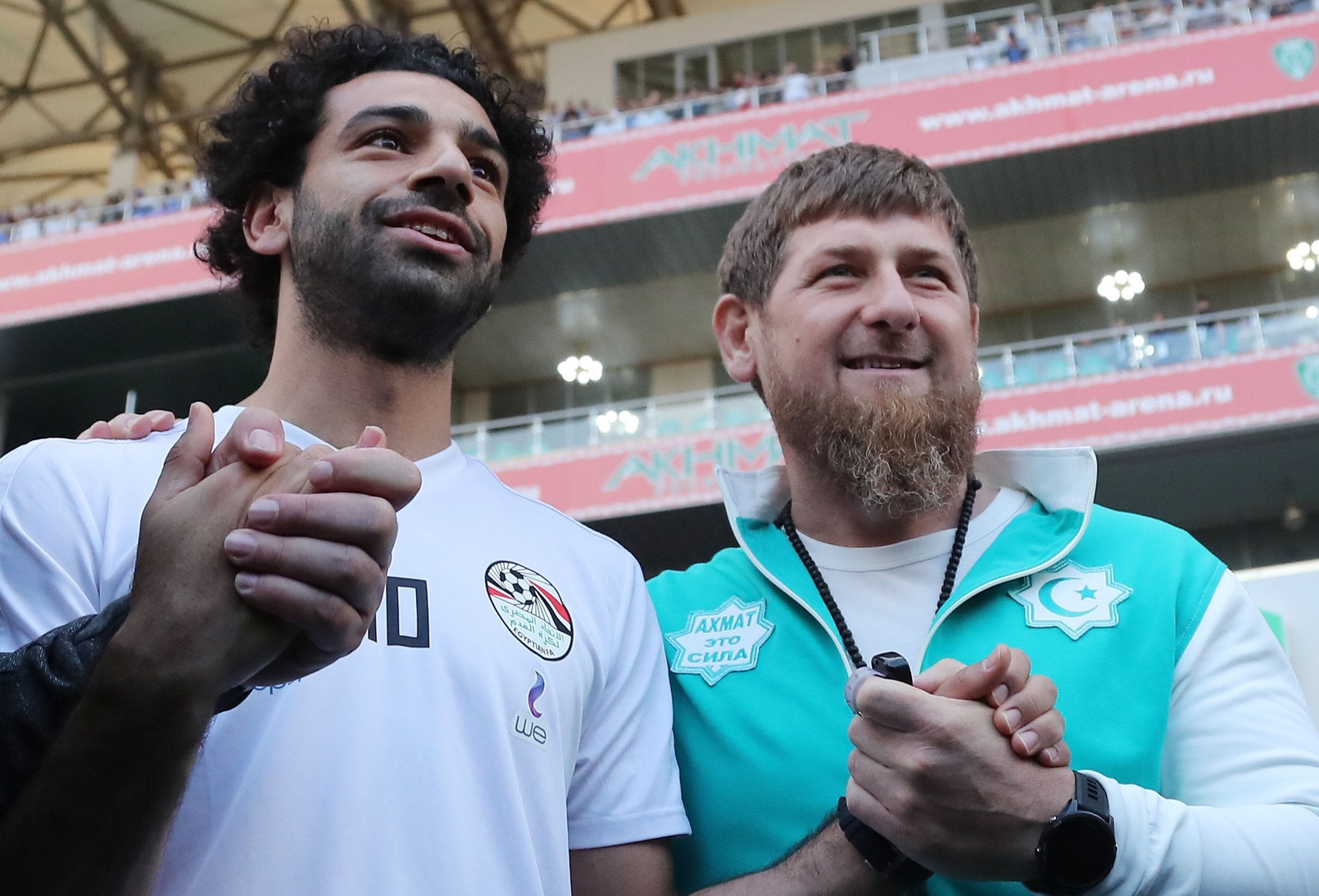If Mohamed Salah does retire, it will be painful for him and his fans – but it'll also be the right thing to do
The young and promising sportsman has become the global face of modern Islam but the way in which he's been used by international governments with propagandist ideas means he's been left with no choice


Your support helps us to tell the story
From reproductive rights to climate change to Big Tech, The Independent is on the ground when the story is developing. Whether it's investigating the financials of Elon Musk's pro-Trump PAC or producing our latest documentary, 'The A Word', which shines a light on the American women fighting for reproductive rights, we know how important it is to parse out the facts from the messaging.
At such a critical moment in US history, we need reporters on the ground. Your donation allows us to keep sending journalists to speak to both sides of the story.
The Independent is trusted by Americans across the entire political spectrum. And unlike many other quality news outlets, we choose not to lock Americans out of our reporting and analysis with paywalls. We believe quality journalism should be available to everyone, paid for by those who can afford it.
Your support makes all the difference.An astonishing season of speed, scares, brilliance and heartbreak will finally end for Mohamed Salah this afternoon in Volgograd. What started with a brace on his Liverpool debut away to Watford will fade with a damp squib against Saudi Arabia, drawing a line under a hugely frustrating World Cup for Egypt.
But their exit at the group stage, following a narrow loss to Uruguay and a battering by hosts Russia, may not be the worst part of the summer for the Pharaohs. Whispers are emanating from the team camp in Grozny that the “Egyptian King” is set to announce his international retirement at the age of just 26, reportedly having grown fed up at his constant exploitation for the purpose of propaganda by his and other governments.
Questions were raised before the World Cup over Egypt’s choice of base for the tournament: the autonomous, Muslim-majority region of Chechnya, scene of two separatist conflicts and a repressive government, which has a questionable record on human rights, especially with regards to homosexuality. Ramzan Kadyrov, the leader of Chechnya, has carved out a niche for himself as the regional strongman; having settled the issue of Chechen insurgency, he has played a crucial role in strengthening ties between Muslim countries and Moscow as Russia has taken centre stage in the Middle East, even sending Chechen security forces to Syria.

Salah, meanwhile, is perhaps the most well-known, and certainly the most popular, Muslim figure in the world. Adored at home and abroad not only for his prowess with a ball at his feet, but for his humble and friendly demeanour, he has become an icon for mainstream, moderate Islam in a Europe still reeling from a series of Islamist attacks across the continent in 2017.
But this popularity has drawn unsavoury elements to his doorstep, which is why, at so young an age and the start of his journey to the sporting stratosphere, he is on the verge of abandoning his country.
Salah has undoubtedly been used as a propaganda tool by Kadyrov during his stay in Grozny, with the Chechen leader waking him up at the team hotel to give him a tour of the city, and awarding him “honorary citizenship” at a dinner over the weekend. It makes sense: what leader wouldn’t want to take advantage of the popularity of a sporting icon? Politicians and dictators have done it for as long as there has been sport, from Mussolini to Tony Blair. But that doesn’t mean Salah is comfortable with it. The fact that the Egyptian FA chose Grozny as their base, and has been complicit in promoting the images of Kadyrov and Salah, suggests this is part of their own strategy as much as Kadyrov’s.
But this is not the only occasion Salah has been effectively strong-armed by the Egyptian FA for his image. Earlier this year, Salah took to Twitter to complain at how his image was being used by the FA to advertise with telecommunications company WE, despite knowing that Salah had an agreement in place with rival firm Vodafone and therefore potentially jeopardising that deal. On that occasion, the FA backed down after a massive backlash by ordinary Egyptian fans – and the fear that Salah might pull out of the squad before the World Cup.
But a few years previously, in 2014, Salah was threatened with military service after he had his exemption removed following his move to Chelsea. Salah was also told that his family, still living in Egypt, would not be permitted to leave the country if he failed to comply. In the end, Salah had the exemption upheld, and was photographed being thanked by Egypt’s president for making a generous donation to the voluntary Long Live Egypt government fund, which had been set up the same year.
He’s not the only footballer to have suffered for disagreeing with the Egyptian and other authoritarian governments. Mohamed Aboutrika, the former golden boy of Egyptian government, was accused of having ties to the Muslim Brotherhood, and placed on a list of wanted terrorists by the Egyptian government. He had previously criticised the Sisi government. Another footballer, Ahmed al-Merghany, had his contract terminated for calling Sisi “useless” on social media. Further afield, former Turkey star Hakan Sukur was forced to flee to California after reportedly angering the government of President Erdogan.
Football has always been political. This World Cup has been heavily criticised for being used as a propaganda tool for the Russian government, and whitewashing issues that affect Chechnya and LGBT+ Russian citizens across the country. Though Salah has been criticised for his actions in Chechnya, and would be further criticised if he were to retire, breaking the hearts of millions of his countrymen, if he is indeed being pressured into acting as a political tool for people and beliefs he himself does not support, what option does he have?
He is widely recognised as a courageous and humble man of principle. Retiring from a national team in protest, defying the wishes of an authoritarian government, is a far braver thing than stepping out onto a football pitch. If he does retire, it will be painful for him. It will also be the right thing to do.
Join our commenting forum
Join thought-provoking conversations, follow other Independent readers and see their replies
0Comments